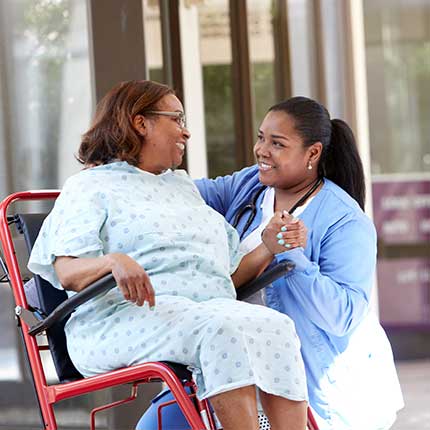Healthy Living
What to Expect in Your Third Trimester
The third trimester covers week 27 of your pregnancy until you give birth. Since it’s the last stretch of the pregnancy, the baby takes up more room in your belly. You may experience more physical discomfort such as backaches, heartburn, varicose veins, frequent urination, hemorrhoids or shortness of breath.
Anxiety and worry could also build up as you anticipate the birth of your baby and how you should prepare for it. To help you manage these, here’s a breakdown of what you can expect month by month during your third trimester:
7th Month: The Baby Prepares for Breathing after Birth
On the first week of the third trimester, the baby looks just a bit smaller and thinner than they will look at birth. Your baby’s immune system, lungs and liver still need to develop, but if born at this point, they would have a good chance of surviving. At week 30, your baby starts preparing for breathing after birth. They could repeatedly move their diaphragm and even experience hiccups, which you may feel like rhythmic cramps.
As you get closer to your due date, we recommend you sign up for childbirth, breastfeeding, infant CPR, newborn care, parenting and other related classes for extra knowledge and confidence, especially if you’re a first-time parent. You may suffer from constipation as your hormones slow your digestion, so doing low-impact exercises and eating high-fiber foods are ideal. Your doctor may also recommend taking iron supplements to keep your red blood cell supply healthy.
8th Month: The Baby Positions for Delivery
Babies gain a significant amount of weight in the final few weeks before birth as the fat develops in their body for warmth and protection. It’s dark inside the stomach, but the baby can detect bright lights from outside. During this time, the baby gradually moves into a head-down position to prepare for delivery. Babies positioned with their bottom first may be advised to be delivered through a C-section.
The eighth month is a good time to speak with your doctors about delivery options, whether you prefer a standard delivery or C-section. Be sure to ask as many questions as possible to make an informed decision. Some challenges you may experience include aches and pains, sleeping difficulties, weight gain and anxiety about labor and delivery, so rest and relax as much as possible.
9th Month: Waiting for Labor and Delivery
Although your due date is at exactly 40 weeks from the first day of your last period, you may give birth anytime between the 37th and 42nd week of your pregnancy. In addition, you may notice the baby moving less as they grow quickly with less room inside the womb for movement. And because the baby is engaged in your pelvis, your bladder is compressed, making frequent trips to the bathroom necessary.
You may also experience more contractions leading up to your delivery. If contractions increase in frequency or if your water breaks, go to the emergency room as soon as possible. If your baby is a boy, it’s best to decide in advance about circumcision, a surgical procedure that removes the foreskin of the penis of male babies.
Tests You May Need During the Third Trimester
Your doctor may suggest any of the following tests in your last trimester:
- Contraction stress test – to determine the effect of contractions on the baby’s heart rate
- Glucose screening – to check for gestational diabetes
- Group B streptococcus – to check for bacteria that may cause severe infections in newborns
- Nonstress test – to see if the baby is getting enough oxygen and responds normally to stimulation
- Ultrasound – to check the baby’s shape and position in the uterus and examine the placenta
- Other tests if you have a pre-existing condition
Final Thoughts
The third trimester could be the most physically and emotionally challenging stage of pregnancy. Be sure to stay in touch with your doctor for regular monitoring of your symptoms and to prepare for labor and delivery. You can also speak with a psychologist, friends or loved ones if you need to release worries or anxieties. Let’s go, mama! We’re rooting for you, and congratulations!
Sources:
KidsHealth
American Pregnancy Association
Healthline



